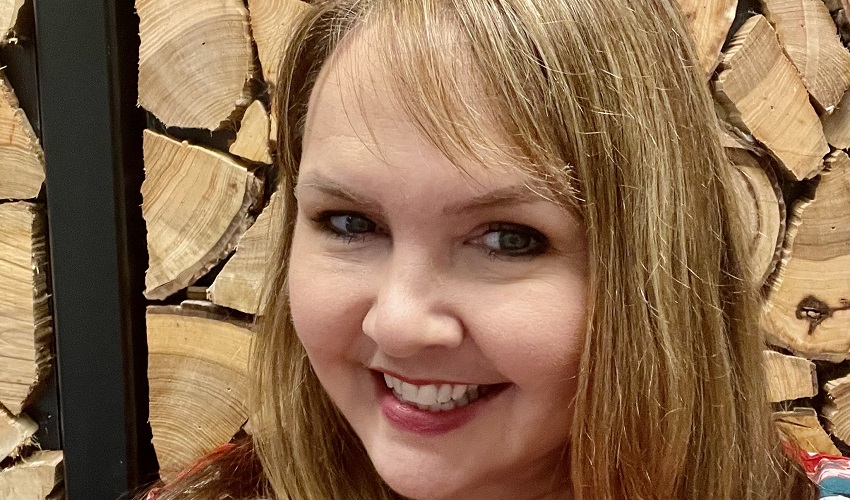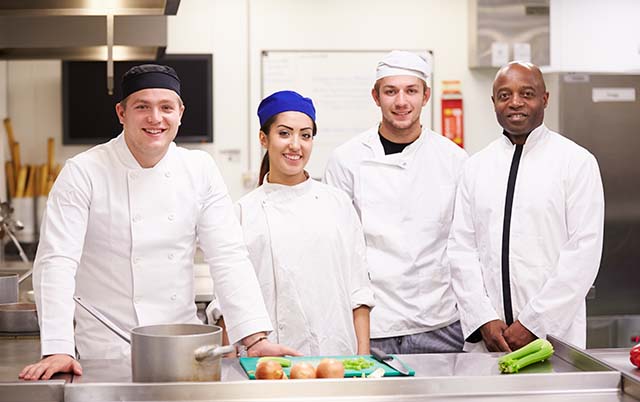How do you become a restaurant marketing executive?

City Barbeque’s Annica Conrad advises marketing professionals to seek out mentors who can help them throughout their careers, and take advantage of networking and growth opportunities.
Jennifer Faren, vice president of marketing for Hopdoddy Burger Bar, grew up working in her family’s restaurant and developed a lifelong love for the business.
In college, she majored in marketing, believing the restaurant business was in her past. It wasn’t until after college that a light went off and she realized she could parlay her marketing degree into the restaurant industry career she enjoys today.
Early on in her career, Stacey Kane, now fractional CMO for California Tortilla and Mamoun’s Falafel, dressed in the mascot costume of the company she worked at, passing out coupons to potential customers.
Rev Ciancio, co-founder and CMO of Handcraft Burgers & Brew, originally owned an artist development agency in the music industry, but realized his calling was in foodservice.
Annica Conrad, chief brand officer at 67-unit City Barbeque, started out as an account executive at an ad agency. A lover of all things restaurant-related, she instinctively knew her future was on the client side. She wanted to be in charge of branding and messaging for a restaurant company.
From humble beginnings to great career opportunities
The four brand marketing executives, panelists at the National Restaurant Association’s Marketing Executive Group meeting in Chicago, discussed their love for the restaurant business and how up-and-coming professionals can achieve similar success—specifically in brand marketing.
“I knew I could use my agency marketing skillset and take it to the next level by applying it to a singular brand,” Conrad says. “It was something I was passionate about. I started at McAllister’s Deli, in a field marketing type capacity, and eventually worked my way up to the VP level. I was always extremely vocal about wanting to do more. I let everyone know, constantly asking them to let me help on as many projects as possible. The goal was to learn as much as I could.”
Ciancio moved from Detroit to the New York City area to promote alternative, punk, and heavy metal bands. On the side, he wrote a hamburger blog detailing his adventures eating burgers at different restaurants. He wasn’t really interested in a restaurant career, but operators in New York who read his blog asked him to help promote their restaurants.
“Eventually, I started taking on restaurants in addition to bands,” he says. “I closed down the music side of things and went fully into hospitality. My friends who are still in the music business will ask what it’s like being in the food business and I tell them it’s really very similar. With restaurants, you’re constantly marketing to drive repeat trips and in the music industry, you’re trying to promote the next album or concert. It's all about guest acquisition and retention.”
Kane got her first actual restaurant job at 15, as a busser in a sushi bar, wearing a full kimono.
“It was 1985, and I was spending the summer with relatives in Durham, N.C.,” she says. “I knew I was good with people, had a natural affinity for talking to them. I needed a job, didn’t have my driver’s license yet, and they needed a busser. I worked the whole summer, until I had to go back to school.”
She continued her education, eventually graduating with degrees in Radio/TV/Film and Journalism from the Universities of North Carolina at Greensboro and Maryland, but decided that wouldn’t be her career path. Instead, she answered a want ad for an assistant marketing director for a Subway advertising co-op in Washington, D.C. She got the job and found her true passion.
“It’s where I really learned about marketing, she says. “I did everything from dressing up as a sub man, handing out coupons on the street, to writing ad creative for radio spots, and teaching franchisees how to grow their sales and community reputations. At the time, I didn’t know all that much, but I learned quickly.
“That’s the thing about the restaurant industry. You can start out making sandwiches, but end up as the chief marketing officer, or even take your knowledge to different industries. The possibilities are endless.”
Faren worked her way through college, as a server and bartender, and honed her talent for communicating with people. After receiving her marketing degree, she worked at a dairy ingredients manufacturer in Wisconsin, and never looked back. She learned about the B-to-B side of the business but decided to return to her roots as a brand marketing expert for restaurant companies, including Chili’s Grill & Bar. Specializing in digital technology and innovation, she helped the brand develop its loyalty program before moving on to a startup called Snap Kitchen, and then Hopdoddy.
“It was a great experience, to go from a large brand with a lot of resources to a smaller one with more limited resources,” she says. “It taught me how to operate on a much smaller budget, but still produce great content and run breakthrough campaigns.”
Tips to achieve career success
When asked for the best advice they could give the next generation of industry marketers, the four executives offered the following tips:
- Be curious. “Don’t be afraid to use your voice and make recommendations at the early part of your career,” Faren says. “Do your research, have insight, then take a shot. Even if the direction isn’t perfect, you’ll learn from it. Try new things, test, and learn. Find new ideas and feel confident in sharing them.”
- Make sure to have mentors. “Seek out mentors who will help you throughout your career,” Conrad says. “Also, seek out opportunities that allow you to network and learn. Make sure you don’t just do your work and keep your head down. Be aware of what’s happening around you. Be inquisitive and share your level of curiosity with others. It’s so important to let others in the company know you want to learn more.”
- Know the industry. A lot of marketers come in and think being a content creator or digital marketing expert is enough,” Kane says, “but it’s not. You have to know how your brand’s frontline person is ringing in your promo code, understand the entire ecosystem of what's happening inside the restaurant. That way, when you “pull the lever” of a marketing plan, you’ll fully understand how your campaign will affect the operation’s logistics. Know how food costs and supply chain work. Be well-rounded in the restaurant business, not just in marketing.
- Develop your plan. Decide where you want to work. “Whether it’s a large or small company, there are valuable lessons to be learned at each,” Ciancio says. “Working for a startup company that's going from two to five locations could be a great learning opportunity. It will teach you how to be scrappy and scalable and learn everything you need to know. But if your plan is to become the CMO of a large chain, like McDonald's, it's probably more valuable to work as a marketing manager at a larger chain.”
Take a look at the National Restaurant Association’s updated Restaurant Industry Job Descriptions landing page. It features more than 60 restaurant-level and corporate-position descriptions for companies to use when advertising their job postings.
-
Heartland
![Heartland Logo]() Heartland
HeartlandHeartland is a proud partner of National Restaurant Association, as the point of sale, payments, and payroll solution of choice for entrepreneurs who need human-centered technology to sell more, keep customers coming back and spend less time in the back office. Nearly 1,000,000 businesses trust Heartland to guide them through market changes and technology challenges so they can stay competitive and focus on building remarkable businesses instead of managing the daily grind. Heartland is a Global Payments Company (NYSE: GPN). Learn more at Heartland.us.

